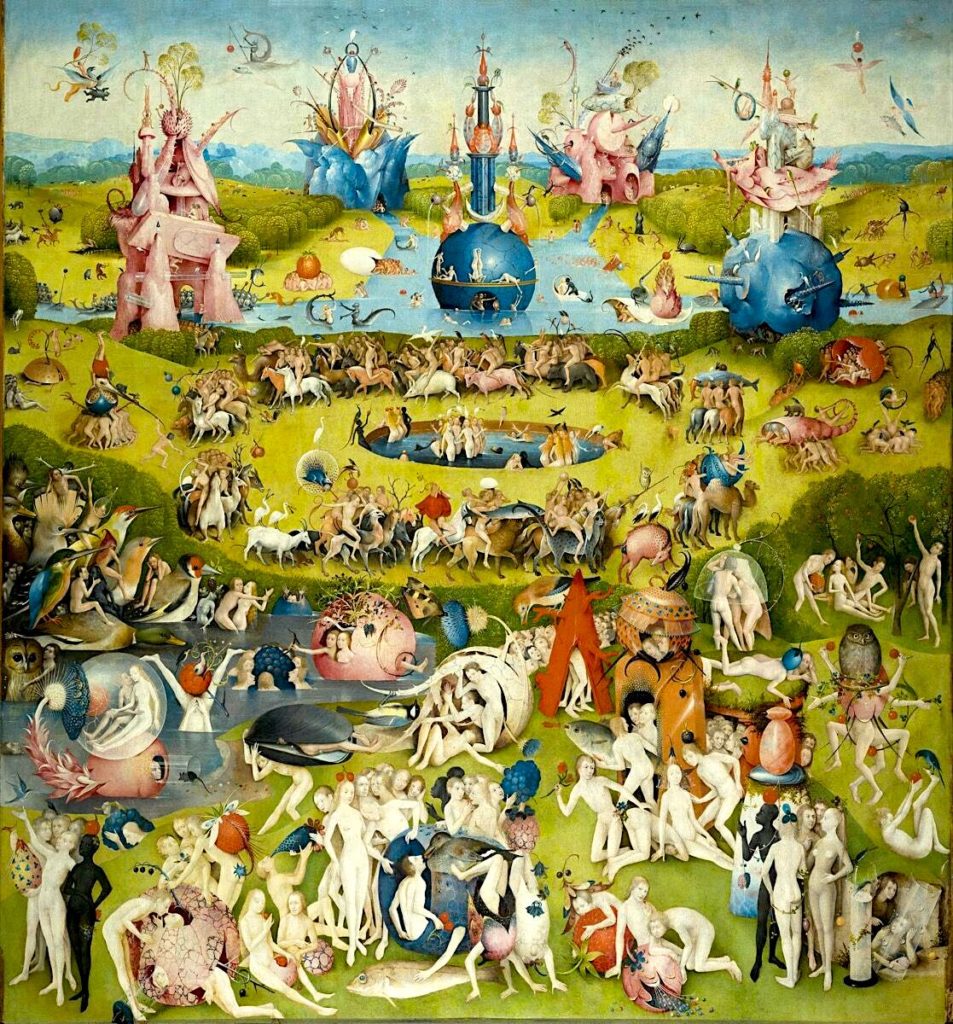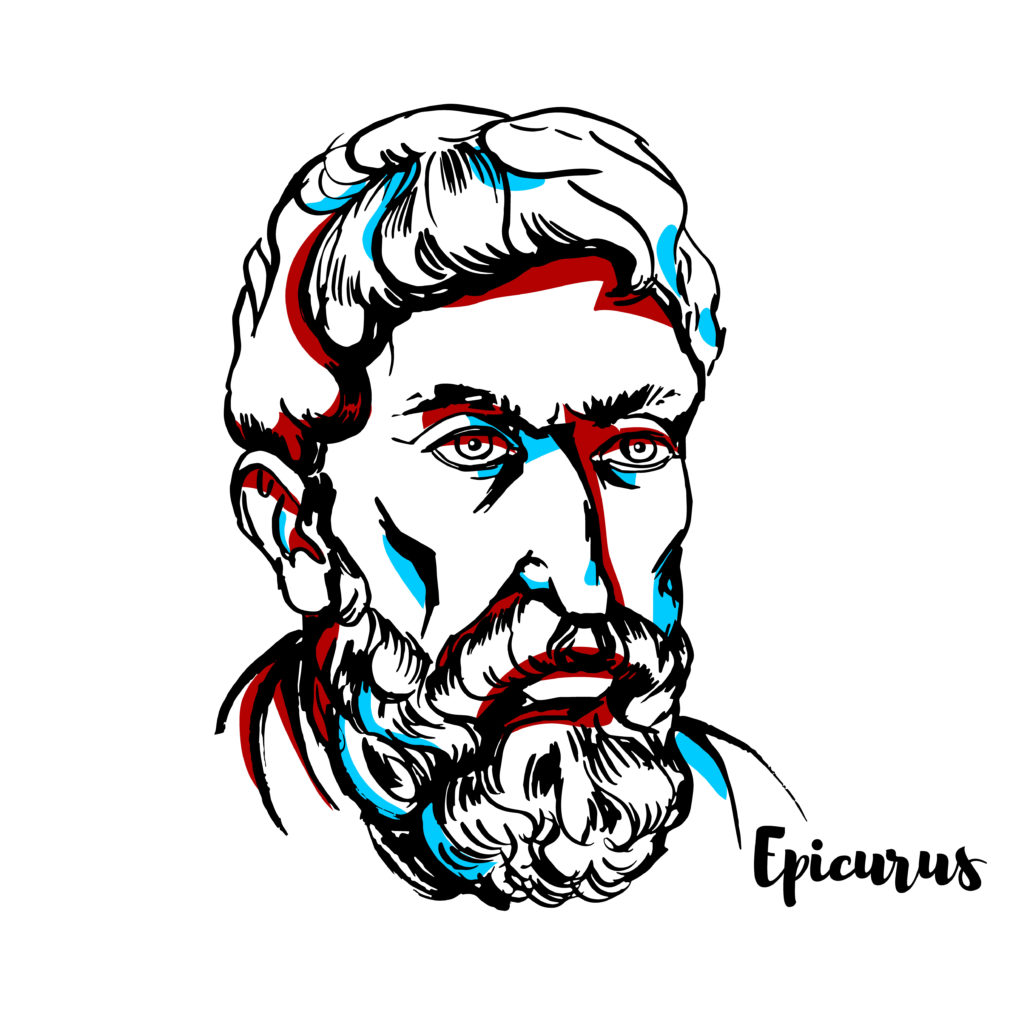Epicurean Philosophy and Way of Life
Many people believe that leading an Epicurean lifestyle means living the life of pleasure, indulging in a hedonistic dolce vita. However, that’s not exactly what the ancient Greek philosopher Epicurus had in mind. Quite the opposite. In this blog post, we’ll show you what it means to lead an Epicurean style of life and how it can help you achieve happiness and tranquility.
Check our upcoming events selected for you:

Epicurean: Meaning and Definition
Based on the teachings of the Greek philosopher Epicurus, who lived between 341 BC and 270 BC, Epicurean philosophy focuses on pleasure as the main goal of life. Back then, pleasure was seen primarily as avoiding suffering and pain. Despite popular belief, Epicurus was more focused on the pleasures of the mind and not the body. He was against artificially produced desires that were meant to be suppressed if we want to achieve happiness. Although he saw sex as natural, Epicurus also advocated against passionate love and marriage. Instead of overindulging, the philosopher found joy in moderate living. According to him, in order to achieve happiness we must first and foremost limit our desires.
Types of Pleasures
Epicurus divided pleasure into two types: pleasures of the body and pleasures of the mind. The pleasures of the body (like eating and sex) are temporary, while the pleasures of the mind involve mental processes like joy, lack of fear, and good memories, that exist throughout time, in the past, in the present, and the future. Because they last longer, the pleasures of the mind are considered more important. The Epicureans further divided pleasures into kinetic pleasure (that involves action), and katastematic pleasure, (a state without experiencing pain).
For an Epicurean, the greatest pleasure can be found in the complete removal of all pain. That’s why the goal of the Epicurean philosophy is to reach the states of aponia, complete lack of physical pain, and the complete lack of mental pain referred to as ataraxia. In order to achieve that, a person would have to suppress and control desires that were seen as the source of pain. The control of one’s desires will bring both aponia and ataraxia to a person.

Desires and a Cure for Pain
According to Epicurean, there are three types of desires:
Natural and necessary desires, that everyone has and cannot be avoided, including what’s required for happiness, necessary for life, and finally the lack of bodily discomfort.
Then there are desires that are natural but not necessary, like the desire to eat delicious food. They are considered normal, but not necessary for achieving happiness or survival because you can survive with insipid food as well. This is why they should be avoided.
Finally, there are desires considered vain and empty by the Epicureans. Those that are not necessary for health or happiness, such as fame or wealth. They too should be avoided as they only bring problems and discomfort. In order to achieve aponia and ataraxia, we must center on the first group of natural and necessary desires. According to Epicurus, leading a simple life, focusing on only what’s necessary, will lead to the ultimate form of happiness.
Epicurus offers us a four-part cure for pain and joylessness, he called the “tetrapharmakos”. The term was originally used for a medical antidote meant to be taken as a cure for sickness. Epicurean followers suggest a 4-step formula for overcoming fear, nervousness, or despair.
- “God is nothing to fear,
- Death is nothing to worry about,
- It is easy to acquire the good things in life,
- It is easy to endure terrible thingsâ€.
Epicurus saw getting rid of the fear of gods and fear of death, as crucial for happy living, as they were seen as the main reasons for unhappiness in life. In the Epicurean philosophy, pain can not be completely avoided, but it can be endured and we can even try to achieve happiness while in pain.
What can Epicurus Teach us about Modern Living?
Although Epicureanism was created millennia ago, its ideas can be applied to our modern way of life. The Greek philosopher teaches us that we should not connect our happiness with desires, for things like wealth and celebrity status, and that we should focus on life necessities. We should free ourselves and our environment from clutter and unnecessary items, and engage in a minimalist lifestyle. But getting rid of worrying and excessive expectations is equally important.
By teaching the followers that desires will not bring us joy if we overwork to purchase items we don’t need, Epicureanism is telling us that we can’t find joy in money. Instead of pursuing money, we should focus on more essential things in life including, friendship, mindfulness, meditation, moderation, learning to deal with criticism, etc.
For instance, if you overwork yourself in order to buy a house, you may end up not enjoying the house at all, cause it reminds you of all the effort you had to endure. That’s why it’s better to live modestly and only spend as much as you must. Instead, save money for old age and the rainy days, and reduce fears for the future. Remember Epicureans think that we can never fully avoid pain as it is a part of our human experience. Sometimes pain is necessary to achieve pleasure. But living a positive and simple life, aimed at controlling desires will lead us to happiness and tranquility.

Follow the Path of the Epicureans
Epicurean theory originates from about 307 BCE, but it can teach us a lot about how we can improve our lives even today. If you want to learn more about Epicurean philosophy, as a simple and optimistic approach to life, join our online lecture. We’ll discuss the Epicurean worldview including its origin, its fascinating theories about the universe and our place in it, as well as about different ways you can use the Epicurean teaching for achieving happiness in your everyday life.

Leave a Reply